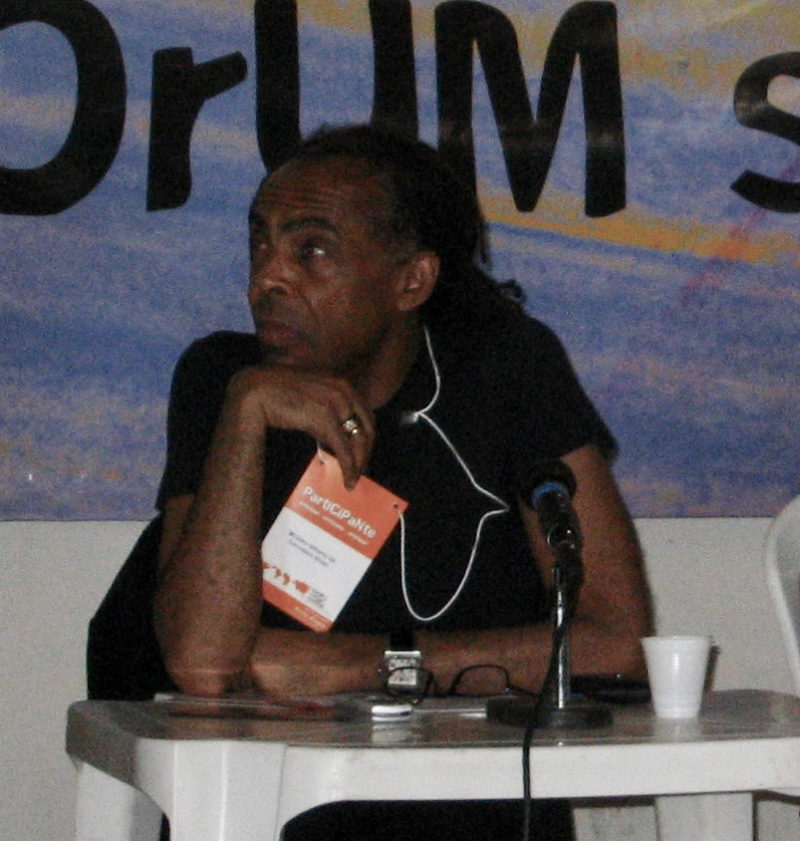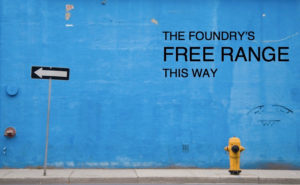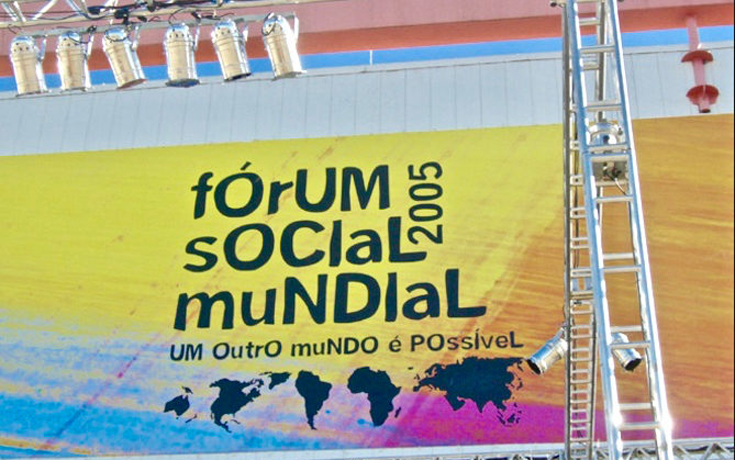
In January 2005, Foundry Artistic Producer, Melanie Joseph attended the 5th World Social Forum, held in Porto Alegre, Brazil (MJ’s American Theatre Article). The WSF, whose motto “Another World Is Possible,” is the largest gathering of civil society in the world, and in history. It brings together tens of thousands of people from the growing global justice movement to imagine, share, refine alternative economic, political, ecological, and organizing strategies and inform each other about movements and new practices from around the world. The intention is to make space for diverse peoples to think together on a globalized basis about the connection between local and international issues, to make room – in greater depth each year – for newly imagined alternatives to the dominant world model in which capital, instead of people, is the organizing principle of public and private institutions.
Given the Foundry’s mission, we held this teach-in to begin to explore how (and why) artists might participate in the ways ‘another world’ is being imagined and built in this progressive, global discourse.
Featuring
Stephen BradleySusie Husted
Cynthia Mellon
Suren Moodliar
Yvonne Shields
Sondra Youdelman
Creative Producer:
Melanie JosephOctober 2, 2005: Ukrainian Hall, NYC
Speakers
Suren Moodliar, North American Alliance for Fair Employment
Susie Husted, Long Island Pine Barrens Society
Suren and Suzie were principal organizers of the Boston Social Forum in the summer of 2004.
Sondra Youdleman, Community Voices Heard
Sondra is one of the organizers of the upcoming 1st US Social Forum; she has organized events within and delegations to two previous editions of the WSF.
Yvonne Shields, Community Voices Heard
Yvonne was a participant in the 2005 WSF and is involved in the planning of the upcoming US Social Forum.
Stephen Bradley, Community Voices Heard
Stephen has been a participant in two of the five WSFs.
Cynthia Mellon
Cynthia organized and brought a delegation of 100 people from Grassroots Global Justice to the 2004 WSF in Mumbai.
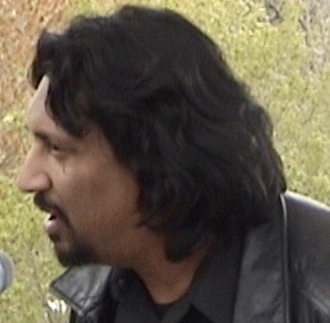
Suren Moodliar
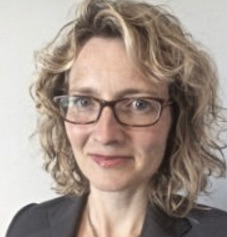
Susie Husted
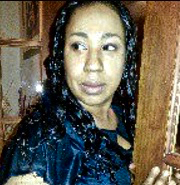
Yvonne Shields
Melanie Joseph
Handouts:
THE WSF: A Cheat Sheet
Gilberto Gil’s Arte e Politica / Art is Political (Translated from Portugese)
Alisa Solomon’s article about the 2005 WSF in The Nation
Melanie Joseph’s article about the 2005 WSF in American Theatre
